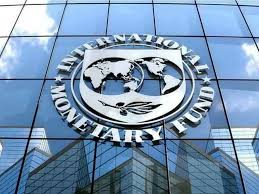At the World Bank and International Monetary Fund (IMF) annual meetings, the IMF has cautioned Nigeria about growing fiscal risks tied to its debt profile, oil sector inefficiencies, and revenue shortfalls.
According to the IMF’s latest assessment, Nigeria’s rising debt levels and heavy dependence on oil revenues pose major challenges to economic stability. The Fund urged the government to implement bold fiscal reforms, improve tax collection, and reduce reliance on borrowing to finance public expenditure.
The IMF also noted that despite high global oil prices, Nigeria’s production remains below capacity due to theft, pipeline vandalism, and underinvestment in the petroleum sector. These issues, it warned, limit the country’s ability to benefit from favorable market conditions and further strain public finances.
Additionally, the report highlighted the need for Nigeria to expand its non-oil revenue sources, strengthen governance, and ensure transparency in public spending. It emphasized that effective monetary and fiscal coordination is vital to keep inflation under control and support sustainable growth.
Meanwhile, Nigerian officials at the meeting reiterated the government’s commitment to economic reforms, including tax restructuring, energy subsidy removal, and improved investment in critical sectors. They assured international partners that steps are being taken to stabilize the economy and restore investor confidence.
However, economic experts warn that without stronger fiscal discipline and improved oil output, Nigeria could face deeper debt vulnerabilities in the coming years. The IMF’s message was clear — managing debt prudently and boosting revenue generation are key to securing the country’s long-term economic future.





















